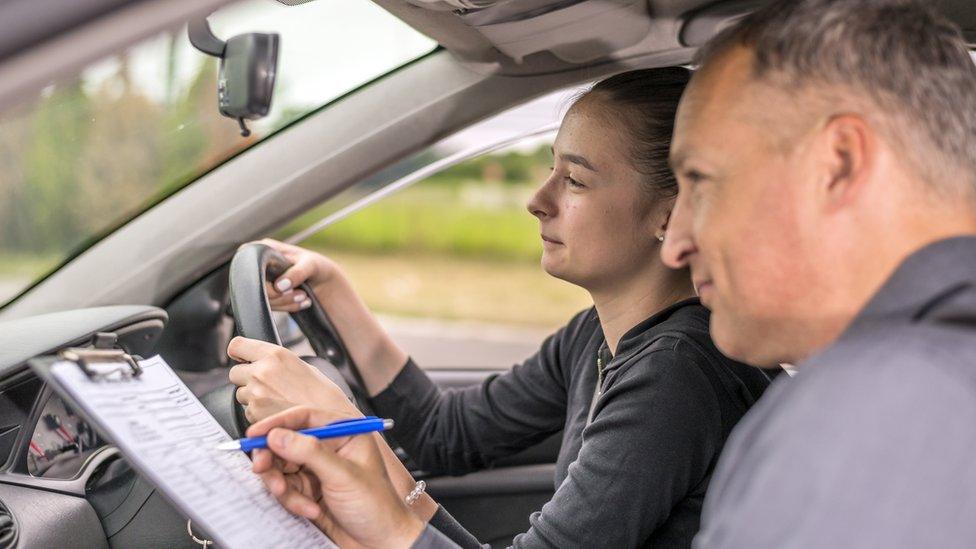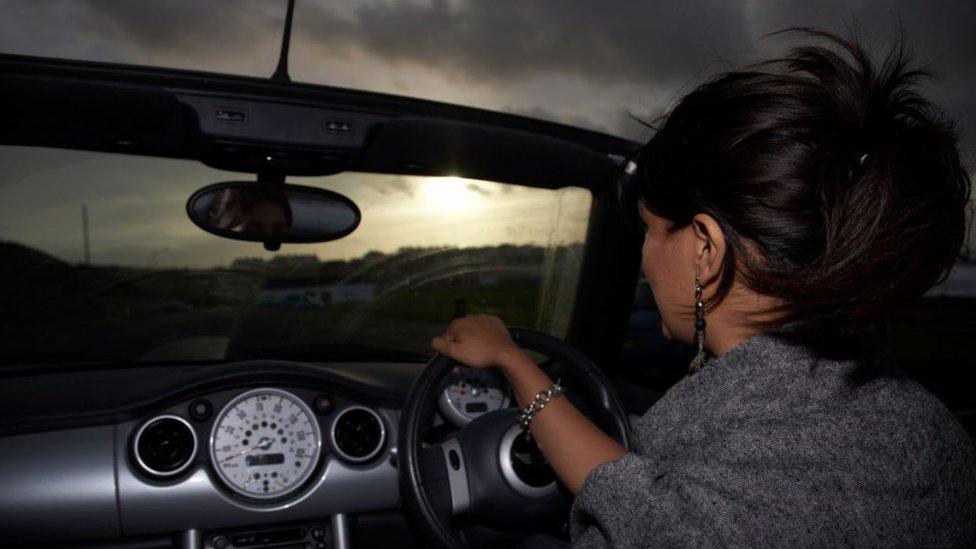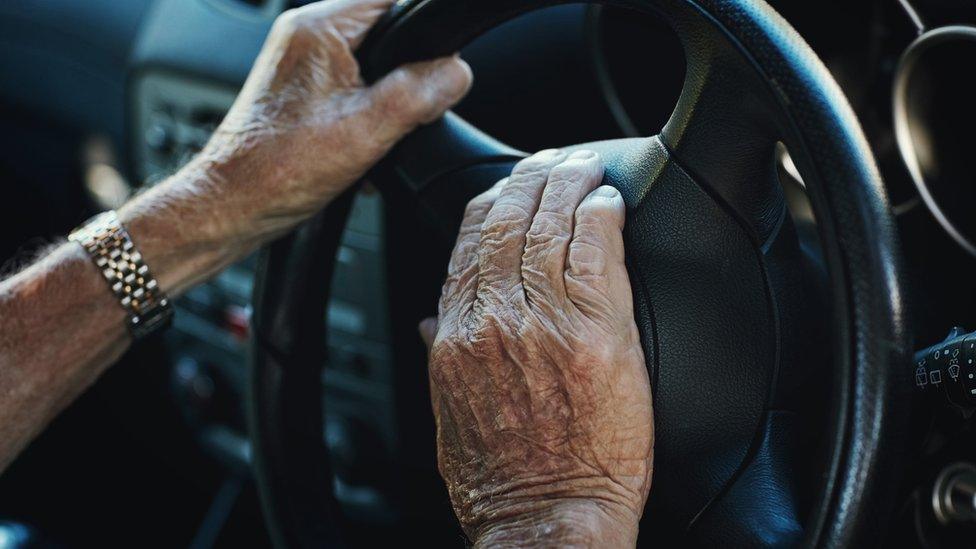New drivers could be banned from driving at night, ministers say
- Published
Young people said they needed to be able to drive at night
New drivers could be banned from travelling at night as part of plans to improve road safety.
Plans for a graduated licence system to restrict novice drivers in England, Scotland and Wales were announced by the Department for Transport (DfT).
The move comes as figures suggest one in five drivers are involved in a crash within a year of passing their test.
But the AA warned "excessive" safety measures could become an "unnecessary burden" for motorists.
As well as not driving at night, the DfT said the system could feature restrictions such as a minimum learning period and not driving with passengers under a certain age.

How do you drive safely in the dark?
Karen Jones, a driving instructor, suggests the following:
Ensure you have properly functioning lights
Turn your gaze away from other lights on the road and don't look at oncoming high beams to avoid being dazzled
Condensation or dirt on the inside or outside of your windows can seriously impair visibility, so make sure they are clean and clear before driving your car
Keep an eye on your speed
Consider a course that includes a module on night-time driving
Read more tips here

The DfT did not say how long the measures would be in place after someone had passed their driving test.
Road safety minister Michael Ellis said getting a driving licence could be both "exciting" and "daunting" for young people.
He said graduated driver licensing could "help new drivers to stay safe and reduce the number of people killed or injured on our roads".

Any changes to licensing would be consulted on before being introduced
The DfT is considering how the system could work, as part of its Road Safety Action Plan, which will be published on Friday.
A spokeswoman said research as to how the scheme would work in practice and further details will be available until 2020.
A Scottish Government spokesperson said ministers supported introducing a graduated licensing scheme, but representations to consider devolving power to Holyrood to enable this have been rejected.
Plans in Northern Ireland to launch a graduate licensing pilot scheme have been put on hold due to the absence of government.
Graduated licensing schemes already operate in several parts of the world, including New York and California in the US, Ontario and British Columbia in Canada, New South Wales and Victoria in Australia, and across Sweden.
They have previously been rejected in Britain over concerns they would restrict young people from accessing education and employment.


Under current rules, new drivers risk having their licences revoked if they accumulate six penalty points within the first two years of passing the test.
But there are no restrictions on when people can drive or the age of their passengers.
Joshua Harris, director of campaigns for road safety charity Brake, said those particularly at risk were "overconfident" newly-qualified young male drivers.
Mr Harris said a more "robust" licensing process could help to keep these drivers safe.
While the Royal Society for the Prevention of Accidents (RoSPA) also welcomed the trial, the AA warned any such scheme should be "properly researched and piloted" to avoid creating an "unnecessary burden".
Ellie from Cambridgeshire does shift work until 22:00 BST, and says there needs to be more clarification around what is meant by "at night", noting that it gets dark at very different times throughout the seasons.
"If this restriction came in for new drivers (I have only had my licence since November 2018) I would have to give up my career," she says.
" I am very angry and very worried about this."

- Published18 July 2019

- Published27 September 2018

- Published19 December 2018

- Published18 July 2018

- Published18 January 2019
